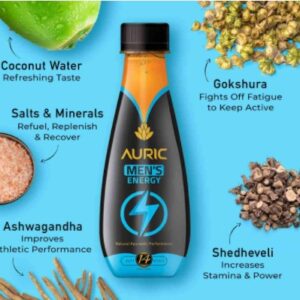Wondering What should be a proper Multivitamin: Consumption pattern!
We know with hectic schedule and busy life there is quite a few population who really focus on the essential Vitamin intake required for a Human body. Recent study shows that maximum working population of our country faces nutritional deficit which makes them prone to illness. Today Multivitamin which are present in different forms of medication, acts as an Intermediary to fill over Nutritional gaps in our Body.

Understanding Multivitamins :
Multivitamin is a dietary supplement which helps in maintaining a balanced diet in within a Human body through various vitamins and minerals. Multivitamins consist of numerous components such as VitaminC, B1, B2, B3, B5, B6, B7, B9, B12, A, E, D2 (or D3), K, potassium, iodine, selenium, borate, zinc, calcium, magnesium, manganese, molybdenum, beta carotene, and iron. With different vitamins having different dosage Pattern it’s essential to consult with the doctor regarding nutritional needs for different people.
Multivitamin and their Consumption Pattern!
Multivitamin Consumption pattern differ from Infant to an adult.
For Adult:
1 tablet orally once/day
10 mL in 500-1000 mL NS/D5W IV or added to total parenteral nutrition (TPN).
For Adolescents :
3 kg or greater for 11 years: 5 mL/day intravenous (IV) of pediatric formulation added to TPN or 100 mL or greater of appropriate solutiond
Age above 11 years: 1 tablet orally once/day or 10 mL in 500-1000 mL NS/D5W IV.
Understanding Multivitamins and their requirements
Vitamins play an essential role as nutrients in our body. Vitamin intake is important for regular body operations. Vitamins help RBCs to carry nutrients & oxygen to our body cells and in maintaining a pathway for nerve signals from body to mind.To do our body operations it’s essential to have some core Vitamins. Deficiency of Vitamins creates severe health problems like heart disease, cancer, fatigue and poor muscle strength. This makes Important for us to understand key Vitamins and there role in our Body.
Fat soluble Vitamins
Fat soluble vitamins such as A,D,E and K are fundamentally fat absorbed in our liver with reserves for future stored. These fatty vitamins moves from small Intestine to main bloodstream. Essential Multivitamin Consumption pattern from fat soluble vitamins:
Vitamin A (retinol, retinoic acid)
Function– Vitamin A functions as an antioxidant while providing important nutrient for Eye vision, good immunity, reproduction and cell division. Antioxidants protects your cells against free radicals.
Good sources & Dosage –
Vitamin A can be found in many fruits and vegetables such as: Spinach, Broccoli, Egg, Milk, yogurt, Green Peas or Kiwifruit etc..
Dosage:
For adult men- 900 micrograms (3000 units per day)
For adult women- 700 micrograms
( 2330 units per day)
Sideeffects:
Dosage of any Vitamin should be consulted with Doctor and taken as per requirements
- Pink eye
- Facial dermatitis
- Lips inflammation
- Hair loss
- Weak eyesight (clouding cornea)
Vitamin D (alfacalcidol, cholecalciferol- D3)
Function: Vitamin D is a fat soluble vitamin . Vitamin D intake helps in building strong bones and muscle strength through Vitamin D we can generate rich amount of calcium and phosphorus.
Good sources and Dosage:
- Vitamin D is made when skin has a direct exposure with sun.
- Vitamin D with Calcium prevents bone loss
- Vitamin D: Salmon, Cheese, yogurt, soy milk, orange, Oatmeal, Fish etc..
Dosage:
As per National institute of Health(NIH) Average daily intake of 400-800 IU or 10-20 micrograms
Side effects:
- Fatigue
- Nausea
- Vomiting
- Kidney failure
- Frequent urination
Vitamin E (RRR- alphaticopherol)
Function:
Vitamin E is one of a fat soluble vitamin which work as an antioxidant, and keeps the body protected against viruse or bacteria. It also helps RBCs from blood clotting inside them. Proper Use of VitaminE prevents cancer, liver disease, stroke and heart rate.
Good sources and Dosage:
Some rich source of Vitamin E includes:
- Sunflower seeds
- Hazelnuts
- Almond
- Avocado
- Kiwis fruit
- Spinach, broccoli etc..
Dosage:
1- 3 years : 200mg/day
4-8 years : 300 mg/pay
9-13 years : 600 mg/day
14-18,years : 800mg/day
19 years and up : 1000mg/day
Sideeffects:
– nausea
– fatigue
– Headache
Vitamin K (Phytonadione):
Function:
Vitamin K is a fat soluble vitamin. Essential function of Vitamin K is to produce protein which helps in blood clotting problems and provides good metabolism. It helps in providing better cognitive health to the body. Lower the chances of stroke and helps in maintaining better heart rate.
Good source and required Dosage :
Some essential sources of Vitamin K includes:
- Spinach and broccoli
- Blueberries
- Asparagus
- Eggs
- Lettuce etc..
Dosage:
Infants- 2.5 mcg/day
Children – 60 mcg/day
Women 19 and up – 90mcg/day
Men 19band up- 120 mcg/day
Sideeffects:
- Muscle stiffness
- Yellow eye and pale skin
- Body swelling
- Decreased appetite
- Difficulty in swallowing
Water Soluble Vitamins
Water soluble Vitamins can be easily dissolved with water and get absorbed into tissues of the body.Water soluble Vitamin doesn’t get stored up as fat soluble Vitamin. Some important water soluble Vitamin are Vitamin C and Vitamin B Complex.
Vitamin B Complex
Function:
Vitamin B Complex helps the body to convert food into nutrients which helps the blood cells and maintain our body tissues. Numerous benefits of Vitamin B include:
- Improving digestion
- Better eye vision
- Healthy appetite
- Proper nerve function
- Relaxes stress and fatigue
- Healthy hormones
Different types of Vitamin B Complex and function:
- Vitamin B1 (Thiamine) is Important for Healthy Metabolism and better Immunity.
- Vitamin B2 (Riboflavin) Boosts the RBCs and provides better Hair and Skin Health.
- Vitamin B3 (Niacin) lowers cardiovascular risk.
- Vitamin B5 (Pantothenic Acid) relieves asthma and builds body stamina
- Vitamin B6 (Pyridoxal phosphate) Reduce Heart Disease and maintains blood sugar
- Vitamin B9 (Folate) helps Body growth and development.
- Vitamin B12 (Cobalamin) to avoid anemia.
Good source and required Dosage :
- milk & cheese
- eggs, meat and fish
- Green vegetables
- Whole grain and cereals
- Beans and Chickpeas
- Soya products/seeds and oil
- Fruits suchas: banana watermelon
Dosage:
B1 (Thiamin) 1.2 mg 1.1 mg
B2 (Riboflavin) 1.3 mg 1.1 mg
B3 (Niacin) 16 mg 14 mg
B5 (Pantothenic acid) 5 mg 5 mg
B6 (Pyridoxine) 1.3 mg 1.3 mg
B7 (Biotin) 30 mcg 30 mcg
B9 (Folate) 400 mcg 400 mcg
B12 (Cobalamin) 2.4 mcg 2.4 mcg
Sideeffects:
- High blood sugar level
- Throat tightness
- Restlessness
- Vomiting
- Liver damage
Vitamin C (Ascorbic Acid)
Function:
In human Body Vitamin C function as an healthy absorbent of iron, helps in wound healing, protects the cell and making it healthy. other benefits of Vitamin C may include strength human Immune system.
Good source and required Dosage :
Vitamin C acts as a water-soluble vitamin found mainly in fruits and vegetables. It works as a powerful antioxidant which benefits human immune system.
Good sources:
- Kakadu plums
- Rose hips
- Guavas
- Brussels sprout etc..
Dosage:
75 milligrams (mg)/day women
90 mg/day men.
Sideeffects:
- Stomach cramps
- Headache
- Nausea
- Diarrhea


